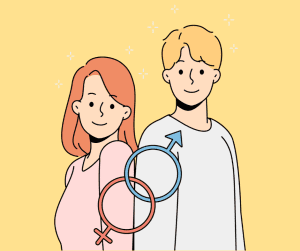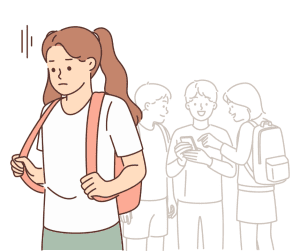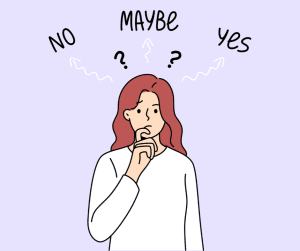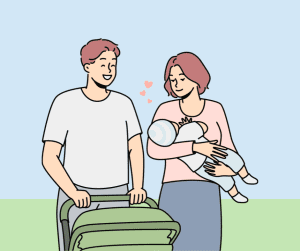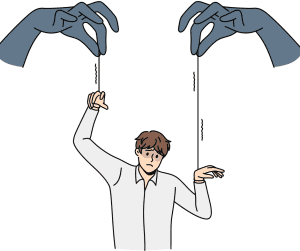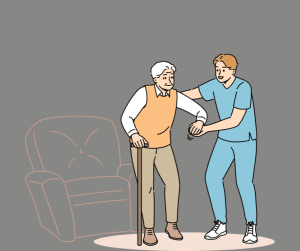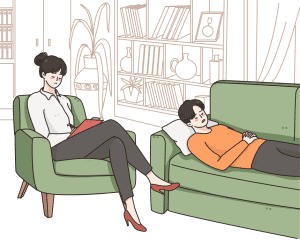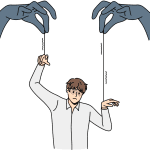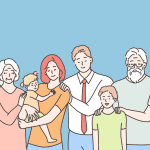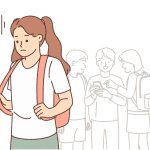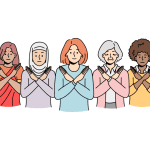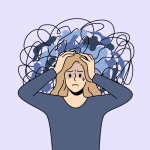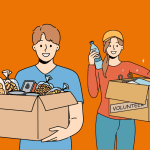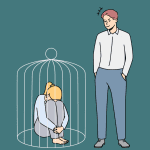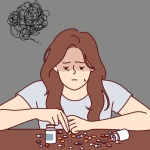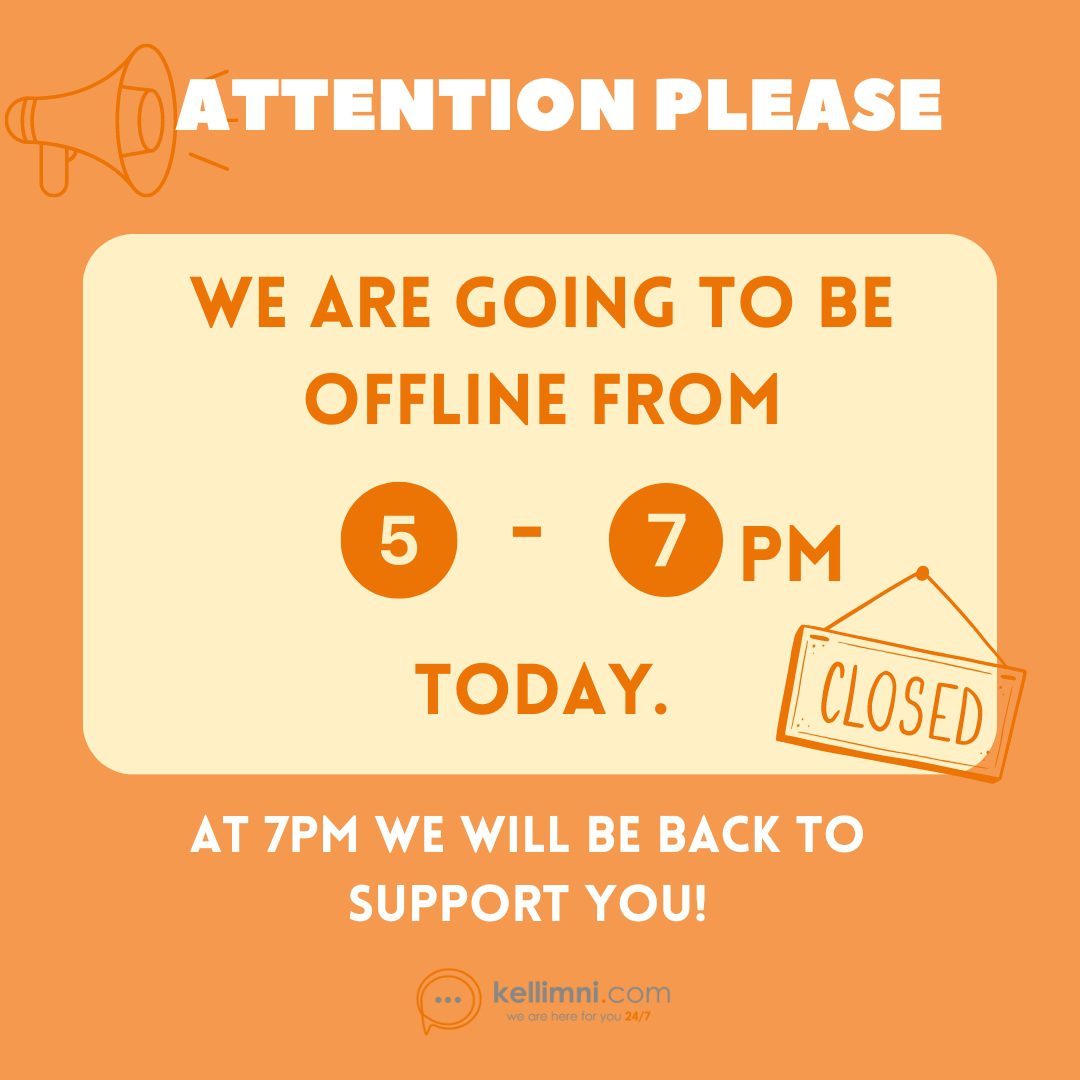The last 2 years of my life have been terrible. Since my parents are separated and my mother decided to solve her problems with alcohol, I’m living in what seems like a black dark hole and I find myself unable to set goals for myself or value my life.
Earlier, I considered myself a lucky child, with many friends, hobbies and excellent grades. Growing up increased my problems and the circle of people around me became smaller and smaller. I felt like the whole world was against me and that there was nobody supporting me. I distanced myself from others and avoided events with many people like parties and sleepovers. Why waste my time when nobody could understand me? I’d rather spend my afternoons and weekends alone watching TV or reading thrillers than meet people or going out.
One day, it was a cold and rainy day, I began reading a new book I had bought a few days before. The story was very engaging and it was the first time I felt understood. It reported the life of a sad and lonely girl, just like me. I identified myself with her. The last chapter of the book shocked me. There was no happy ending for the protagonist. She was sick of her life and decided to kill herself. The person, although it was a virtual one, who gave me the feeling of being understood, died.
Since that day I started thinking about suicide more and more. First I just was curious and wanted to know more about it. After a few weeks I was obsessed with this topic and I couldn’t stop thinking about it. I imagined how would it be if I left this world and I was sure that nobody would care about my death. It would be a kind of release for me to end my useless and miserable life and so I started planning my suicide. I wanted a fast and painless death, so I bought a huge pack of sleeping pills and went to the bathroom. I looked at myself in the mirror, the dark circles around my eyes and my tired face. Is this the right decision? Convincing myself and nodding to my mirror image, I put the pills into my hand.
Just in this moment I saw a person behind me. I looked in the mirror and saw my mother standing behind me. With fear and panic in her eyes she just stared at me. I thought she is going to yell or hit me like she did so many times before, but instead she started crying and hugged me strongly. We stood there for more than half an hour just holding each other. My mother asked me for the reason why I wanted to kill myself. I explained her that I feel useless and that there’s nobody who cares about my presence.”But darling”, she said “I care about you. You’re the only thing I got in my life, I thought about suicide often, because I failed so many times. But then I thought about you and that it would not be right if I leave you alone. Believe me there’s always a reason which is worth to stay alive”.
~ written by Zerina Smaijc
Suicide – Info & advice
Adolescents go through time of excitement and discovery but it can also be a period of great confusion and anxiety. There’s pressure to fit in socially, to act responsibly and a need for individuality that often conflicts with the rules and expectations set by grown ups.
Many teens don’t believe they have an adequate support network of friends, family, peer groups or extracurricular activities and that is the reason why they often feel disconnected and isolated. They are at increased risk for suicide.
I am thinking about ending my life….
- Share your thoughts and feelings with an adult who you trust – There are other options than suicide, sharing your ideas with a trusted adult like a relative, teacher, school counsellor or friend can help you explore other options and why you are feeling this way. If you don’t wish to speak to anyone about your feelings, try writing your thoughts down on a paper and showing the paper to a trusted adult. You can also contact a telephone helpline like 179 or Richmond Foundation on 21482336 or chat or email Kellimni.com. Such services can support you through your feelings and thoughts and help you explore options.
- If you are in immediate danger call the Crisis Intervention Service on 2545 3950 (Monday to Sunday from 7am till 5.30pm) or 112 (24/7).
How to recognise that a young person is at risk of suicide?
People who are considering ending their life may give several hints about their intentions. The following are some of them:
- Feelings of hopelessness, distress, guilt, extreme boredom and worthlessness
- Lack of concentration, or a worsening in the quality of work
- Frequent complaints about physical symptoms
- Lack of a support network, feelings of social isolation
- a previous suicide attempt
- Physical or sexual abuse (past or present)
- Recent traumatic event
- Psychological disorder, especially depression
- Violent or rebellious behavior (running away, drinking alcohol, taking drugs…)
- Fixation with death including talking, writing, or drawing about it
- Change in eating and sleeping habits
- Withdrawal from friends, family, and regular activities
- Unusual neglect of personal appearance
- Refusal of praise or rewards
My friend seems to be considering suicide – what should I do?
If you have a friend or know someone who is considering ending his/her life, there may be some things that you can do to help him/her reconsider the situation.
- If someone talks about suicide, TAKE THEM SERIOUSLY. Many youth have taken their lives when people thought their statements about suicide were not true or simply ways to seek attention, so never ignore suicidal comments or leave a suicidal person alone.
- Let them know you are concerned – Tell them that you are concerned, and that you are there to help. Ask if they are thinking about suicide and if they have made any plans: Talking about suicide will not make them take action; Asking shows that you care and allows them to talk about their feelings and plans – the first step to getting help. If they do not wish to speak about these, encourage them to express themselves by writing a letter or chatting with you online. You can use the following to help you start talking about it:
“I have been feeling concerned about you lately.”
“Recently, I have noticed some differences in you and wondered how you are doing.”
“I wanted to see how you are because you haven’t seemed yourself lately.”
“Did something happen that made you start feeling this way?”
“How can I best support you right now?”
“Have you thought about getting help?”
“You are not alone in this. I’m here for you.”
“I may not be able to understand exactly how you feel, but I care about you and want to help.”
“When you want to give up, tell yourself you will hold off for just one more day, hour, minute—whatever you can manage.”
- Take action to get help now – Tell them that there are other options than suicide. Don’t agree to keep their suicidal thoughts or plans a secret. Don’t assume they will get better without help or that they will seek help on their own.
- Encourage them to get professional help – Make an appointment with a GP and offer for someone to go along with them. Contact a school counsellor, teacher, family member or adult friend. Contact a helpline like Kellimni.com or 179 for information and advice, or Richmond Foundation on 21482336 for support.
- Ask about how they plan to commit suicide. Check if they are able to carry out this plan. Do they have a time, place or method? Remove access to objects they could use to hurt themselves.
- Take care of yourself It is emotionally demanding to support someone who is suicidal. Find someone to talk things over with, like your family, friends or a helpline.
My friend has just tried to commit suicide – what should I do?
- Do not panic.
- Talk to the person in danger – Get the right information so that professionals will be able to help as much as possible. Ask about how the person tried to end his/her life (what method did he/she use?). It is important to ask whether the person is on his/her own. If not, ask other individuals for help to keep him/her awake.
- Call the Crisis Intervention Service on 2545 3950 (Monday to Sunday from 7am till 5.30pm) or the Emergency Service 112 (24/7). Tell them the person has just attempted suicide and needs help.
My friend has just committed suicide – how do I get over it?
Sometimes even if you get help and adults intervene, a friend or classmate may attempt or die by suicide. When this happens, it’s common to have many different emotions. Some teens say they feel guilty — especially if they felt they could have interpreted their friend’s actions and words better. Others say they feel angry with the person for doing something so selfish. Still others say they feel nothing at all — they are too filled with grief to process their emotions.
When someone attempts suicide, those who know that person may feel afraid or uncomfortable about talking to him or her. Try to overcome these feelings of discomfort — this is a time when someone absolutely needs to feel connected to others.
If you are having difficulty dealing with a friend or classmate’s suicide, it’s best to talk to an adult you trust, like a teacher, school counsellor or relative. Feeling grief after a friend dies by suicide is normal. But if that sadness begins to interfere with your everyday life, it’s a sign that you may need to speak with someone about your feelings.
This article was developed with the help of the following articles:
http://m.kidshealth.org/en/teens/talking-about-suicide.html
https://www.sane.org/mental-health-and-illness/facts-and-guides/sane-steps-how-to-help-when-someone-is-suicidal
